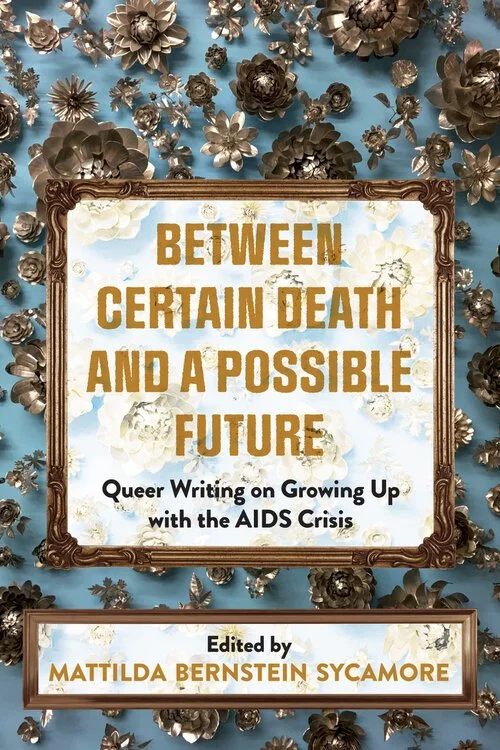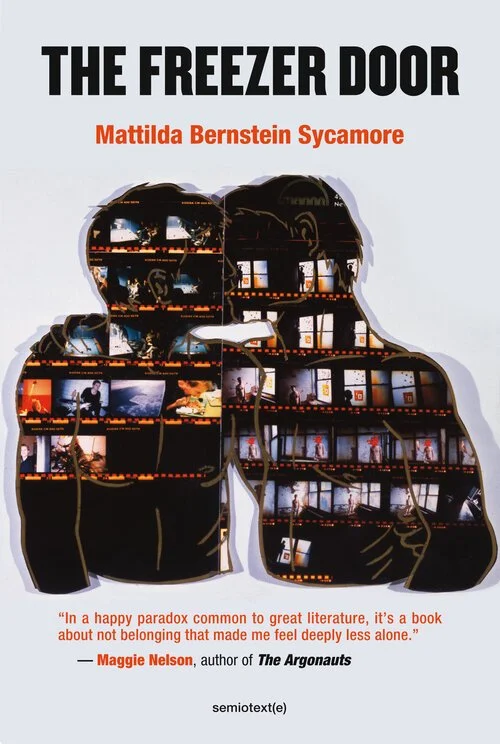Mattilda Bernstein Sycamore is the author, most recently, of Touching the Art (Soft Skull, 2023) a memoir that mixes biography, criticism, and social history, which Lilith Magazine called “brilliant.” Her other books include,The Freezer Door (Semiotext(e), 2020), a New York Times Editors’ Choice, one of Oprah Magazine’s Best LGBTQ Books of 2020, and a finalist for the PEN/Jean Stein Book Award, and three novels: Sketchtasy (Arsenal Pulp Press, 2018), one of NPR’s Best Books of 2018; So Many Ways to Sleep Badly (City Lights, 2008), which Michelle Tea called, “a breathtakingly poetic (and hilarious) book,” and Pulling Taffy (Suspect Thoughts Press, 2003.)
Her memoir, The End of San Francisco (City Lights, 2013) won a LAMBDA Literary Award. She is the editor of six anthologies: Between Certain Death and a Possible Future: Queer Writing on Growing Up with the AIDS Crisis (Arsenal Pulp Press, 2021), Why Are Faggots So Afraid Of Faggots?: Flaming Challenges to Masculinity, Objectification, and the Desire to Conform (AK Press, 2012), Nobody Passes: Rejecting the Rules of Gender and Conformity (Seal Press, 2006), That’s Revolting!: Queer Strategies for Resisting Assimilation (Soft Skull Press, 2004), Dangerous Families: Queer Writing on Surviving (Routledge, 2004) and Tricks and Treats: Sex Workers Write about Their Clients (Routledge, 2000.)
Sycamore has written for a variety of publications, including the New York Times Book Review, San Francisco Chronicle, BOMB, Bookforum, Boston Review, The Baffler, n+1, Ploughshares, Fence, Literary Hub, Electric Literature, Truthout, Utne Reader, AlterNet, Bitch, Bookslut, Denver Quarterly, The Stranger, and the Los Angeles Review of Books. For ten years Mattilda was the reviews editor and a columnist for the feminist magazine Make/shift, and she’s now part of the editorial collective for the Anarchist Review of Books. Sycamore also created Lostmissing, a public art project about the friend who will always be there, and what happens when you lose that relationship.
Sycamore’s activism has included ACT UP in the early-‘90s, Fed Up Queers in the late-‘90s, Gay Shame, and numerous lesser-known (or even unnamed) groups.
In an interview with BOMB Magazine, Sycamore was asked about the structure of The Freezer Door. “When I start writing a new book, I’m not thinking about what I’m doing,” she responded. “I just write and write, and I don’t take a look at the whole thing until I have a sense that I might have arrived somewhere—I never know where exactly, but a place where the text might reveal something surprising. Then I basically just cut and rearrange and cut and rearrange and cut—I’m a really neurotic editor.”
Her papers are archived at the San Francisco Public Library, and are accessible to the public. She lives in Seattle.












